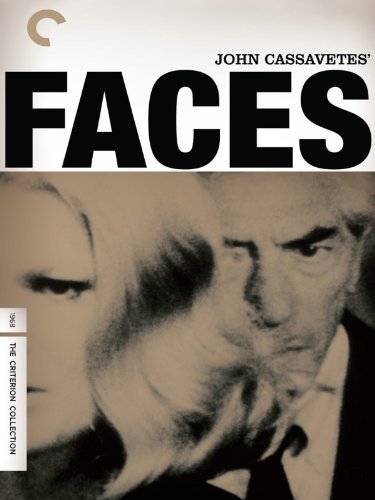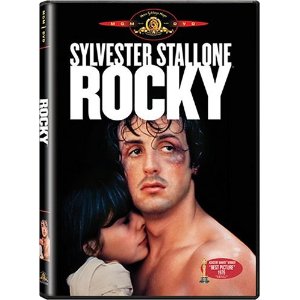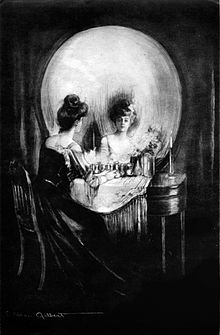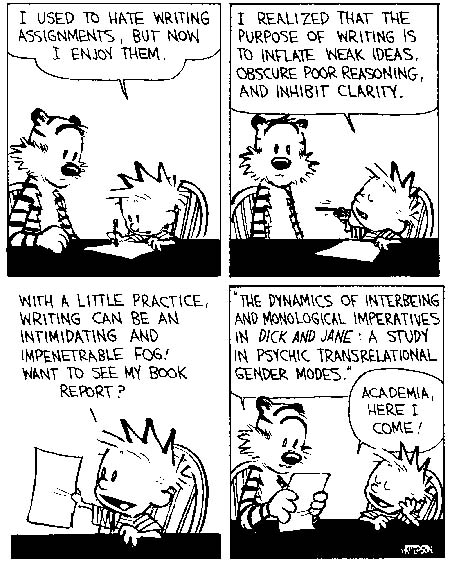 When I was a teenager, it was fun to take potshots at great artists and thinkers I knew little about. This is part of growing up. But I wonder why it is that many people never outgrow this urge? Don’t get me wrong, I’m all for iconoclasts. But in order to be against something, you have to know it pretty well. For example, I would love to rage about how much Stephen King sucks these days, but I’m not willing to read all his novels even once to get to a place where I could begin to make such claims. (I thought The Shining was very good 30 years ago; I take no responsibility for that opinion today.)
When I was a teenager, it was fun to take potshots at great artists and thinkers I knew little about. This is part of growing up. But I wonder why it is that many people never outgrow this urge? Don’t get me wrong, I’m all for iconoclasts. But in order to be against something, you have to know it pretty well. For example, I would love to rage about how much Stephen King sucks these days, but I’m not willing to read all his novels even once to get to a place where I could begin to make such claims. (I thought The Shining was very good 30 years ago; I take no responsibility for that opinion today.)
Dissing Cassavetes
A few months ago, I came upon Andre Soares over at the Alt Film Guide. I know what you’re thinking, “Isn’t André Soares Ribeiro da Silva, more commonly known as André Soares, the 18th century Portuguese sculptor and architect dead?” Yes, he is. This is a different Andre Soares. He is a film ombudsman. And as such, he is hardly bad or unusual. But I’ve only read one of his reviews. He might normally be great. I don’t know. I don’t care. But let me tell you how I discovered him.
I came upon a copy of John Cassavetes’ Faces. It was very exciting, because I quite like Cassavetes and I had never seen any of his early films. To me, his reputation depended upon A Woman Under the Influence and The Killing of a Chinese Bookie. And Gloria, because I’m an ol’ softy. I have long thought that America over-values foreign film to the detriment of truly independent film[1]. So I was glad that Faces had got the Criterion Collection treatment.
I grabbed the DVD, took it home and watched it. It was so powerful, I watched it again to get a better look at the technique. Then I watched all of stuff on the extras disc. Really: I couldn’t get enough. I went online to see what people where saying and that’s how I landed on Alt Film Guide.
Soares’ review is very well written, and if I hadn’t seen the movie, I would have found it compelling. Having just watched the film, however, I noticed something: the review was a hatchet job. I’m sure going in he had decided to savage the film. There were many problems. First, he made a few mistakes about the plot of the film. Second, he made some other mistakes. Third, it was clear he had watched the film only once. Fourth, he clearly didn’t look at the extras disc, which seems critical to me if you are, you know, doing a DVD review instead of just a movie review. When you get right down to it, the review was just a pretext for claiming that Cassavetes is over-rated.
Here is what passes for argument from Mr. Soares:
Faces‘ drama failed to move me not because of either the film’s plot, however predictable at times, or conventional set of characters. Faces‘ chief handicap is director-writer John Cassavetes, who apparently was too enamored of his own anti-Hollywood brilliance to let a mere story and a handful of distraught human beings get in the way of his stock-in-trade cinematic tricks. These include the use of a handheld camera that helps make the barely discernible action even murkier, and an overabundance of closeups. True, the film is called Faces, but unlike Ingmar Bergman, whose closeups (usually) transport us into the inner core of his actors, Cassavetes only presents us with talking heads. And do those heads talk.
So let’s deconstruct this argument: Cassavetes uses cinematic tricks (Handheld camera! Wow!) to get in the way of the story he wrote. Despite all these tricks, Cassavetes only presents us with talking heads. In other words: the film is too stylish except that it isn’t. The tired comparison to Bergman (usually) is priceless. I love the 5-hour Scenes from a Marriage, but it is all talking heads and it doesn’t transport the viewer anywhere—and that’s the point!
Just to finish up: any time an ombudsman says something like “the film didn’t move me” or “I didn’t think it was funny” I know why I no longer write (or usually even read) reviews. If you base your judgement of a film on a single viewing, your opinion is as much an indication of where you are emotionally as it is of anything in the film. If your lover just left you and you lost your job, you probably aren’t going to find the best film in the world very good. Art takes time. And so does its appreciation.
Dissing Welles
I went to the library the other day in search of a reference that contained a rough estimate of the percentage of any particular Shakespeare play that was written in verse. I know I’ve seen such a thing. I did not find it, but I did happen upon one of my old nemesis: Reed Martin and Austin Tichenor’s Reduced Shakespeare. I browsed through the book and came to a review of Orson Welles’ Chimes at Midnight:
This is Orson Welles’ crowning Shakespearean achievement, in which he brings a robust magnificence to Falstaff, Shakespeare’s greatest comic creation and a part Welles was born to play. He had a brilliant idea: create a story that focused on Falstaff by taking the relevant scenes from all the plays in which Falstaff appears (
Henry VI[2],
Parts 1 and
2,
Henry V[3],
Richard II, and
The Merry Wives of Window). He even used Holinshed’s
Chronicles (Shakespeare’s own original source) for the narration. Welles’ performance is outstanding, and the battle scenes are impressively intense.
Unfortunately, crowning achieve or not, Welles’ glory days as a director were far behind him. [Total fucktard statement. -FM] It’s too bad he wouldn’t trust the production to a director who could obtain some strong studio support. There are so many technical glitches that it becomes impossible to follow the story, and Welles had two incredibly distracting directorial habits: he seems to always put the camera in a hole in the floor (so you watch the actors’ chins against a backdrop of sky), and he loved the sights and sounds of background actors laughing. It’s even more annoying than listening to a laugh track on a sitcom: this way, you’re watching it, too. Welles seemed to forget that when you want an audience to cry, you don’t let the actor cry. It’s the same when you want the audience to laugh. Sigh. Very disappointing.
They gave it one out of five “bards.”
I suppose that Soares can be forgiven, because it has yet to become a cliche to hate on Cassavetes. But it has become a cliche to hate on Welles. Let’s face it, he’s an easy target: he’s fat. Forget what Falstaff said, “If to be fat be to be hated, then Pharaoh’s lean kine are to be loved.” In America, to be fat is to be hated. Martin and Tichenor pile on here with glee.
But there’s a problem: they are wrong from top to bottom. To begin, how was Welles born to play this part? Because he was fat? That’s all I can guess. The truth is, I don’t particularly like him in the part because his conception is very much mine: Falstaff is a frightened and beaten man. There isn’t a great deal of humor in his playing of the part. As I’ve said before, I much prefer Robbie Coltrane.
Despite this, I quite like Chimes at Midnight. It works better than Shakespeare on film ever did before that.[4] And this is due primarily to Welles the director. The film is visually stunning. Yes, Welles did like low camera angles, but this film is quite subdued in this regard. And their take on the laughter is totally wrong. People are laughing in the tavern because they are laughing at Falstaff. There is no “laugh track” element here and the only way one would think this is if one were intent on making that point.
The film is all the more remarkable in that it does not look like the usual Welles guerrilla film-making. But to think that Welles could have got this shot with any other director through ordinary channels is madness. Just look at Welles! He actually slimmed down in the 70s. In the 60s, he looked his worst. No studio would have invested in Shakespeare with Welles in a star role. He did what he had to do to get the film made. And he succeeded. Brilliantly.
I am not a worshiper of artists. Both Cassavetes and Welles were far from perfect. But they were both artists who managed to do exceptional work under difficult circumstances. To me, the greatest thing you can say against both men is that they didn’t leave enough work. Why do people take aim at these men when there are extremely well-paid men creating garbage everyday who are far more deserving of such venom?
[1] I often hear of $5 million films referred to as independent, hence the “truly” qualifier.
[2] There is a little mix-up about Henry VI with Henry IV. It could happen to anyone.
[3] Falstaff is only mentioned in Henry V, he isn’t in it. What’s more, he isn’t even mentioned in Richard II. I think these guys get their Shakespeare entirely from movies (e.g. Falstaff is in Kenneth Branagh’s Henry V).
[4] Welles’ Othello is of a similar quality for the same reason. And it would be worth watching just for the unusual film appearance of Micheál Mac Liammóir as Iago. You can also hear him doing the narration for the wonderfully fun Tom Jones. (BTW: Martin and Tichenor gave this great version of Othello one bard as well.)
 Most people are not aware that the United States tried to make caffeine illegal in the 1930s. They found that it was impossible. It was already in so many products and the United States of Commerce has a government of the corporations, by the corporations, for the corporations. But you didn’t need to know that to figure out that a drug’s danger had nothing to do with its legal status. According to the CDC, “Each year, an estimated 443,000 people die prematurely from smoking or exposure to secondhand smoke.” This is far more than the number of people who die from all illegal drugs combined. But who cares? We’re talking profits!
Most people are not aware that the United States tried to make caffeine illegal in the 1930s. They found that it was impossible. It was already in so many products and the United States of Commerce has a government of the corporations, by the corporations, for the corporations. But you didn’t need to know that to figure out that a drug’s danger had nothing to do with its legal status. According to the CDC, “Each year, an estimated 443,000 people die prematurely from smoking or exposure to secondhand smoke.” This is far more than the number of people who die from all illegal drugs combined. But who cares? We’re talking profits!
 Lou Dobbs (You know: the bigot!) was on
Lou Dobbs (You know: the bigot!) was on 
 A long time ago, I wrote poetry, just like too many sensitive young people. But I was marginally successful, reaching the height of my art with a couple of things published in Andrei Codrescu’s
A long time ago, I wrote poetry, just like too many sensitive young people. But I was marginally successful, reaching the height of my art with a couple of things published in Andrei Codrescu’s 
 Breaking news from The Onion’s NEWS IN BRIEF, 26 January 2012 issue:
Breaking news from The Onion’s NEWS IN BRIEF, 26 January 2012 issue: Cute baby contests have been around for decades. They probably began at fairs where contests of all kinds were a staple entertainment. It was good, clean American fun. But then, like most things that start out wholesome, our society twisted and tweaked the idea until they became sordid and disgusting (wet T-shirt contests, any high school popularity bullshit like Best Hair, etc.).
Cute baby contests have been around for decades. They probably began at fairs where contests of all kinds were a staple entertainment. It was good, clean American fun. But then, like most things that start out wholesome, our society twisted and tweaked the idea until they became sordid and disgusting (wet T-shirt contests, any high school popularity bullshit like Best Hair, etc.).

